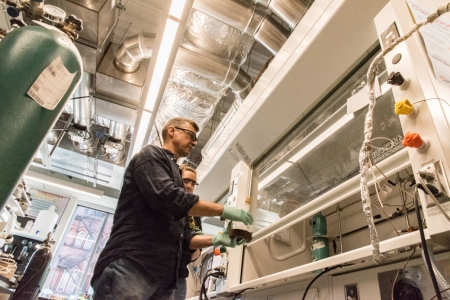Biochemists study the molecular interactions that guide many processes involved in living organisms. This involves exploring the underlying chemical and physical properties of these organisms, from metabolism and enzyme kinetics to gene transfection and cellular signaling. A variety of career options await biochemistry majors after graduation. Most recent graduates have moved on to: positions in the biotech industry, graduate school to further their education, or medical school.
By virtue of its interdisciplinary nature, the undergraduate biochemistry program is a collaborative endeavor for three departments: Biochemistry, Chemistry, plus Microbiology and Molecular Genetics. Students can pursue the major as a member of two different colleges: College of Arts and Sciences and College of Agriculture and Life Sciences.







